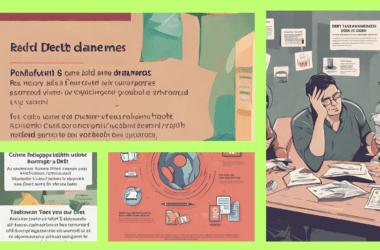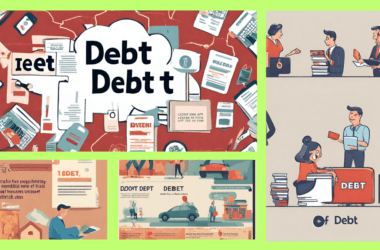Interest rates play a pivotal role in shaping the economic landscape, with their impact reverberating across various sectors. From personal finances to global markets, the sway of interest rates is undeniable. Let’s delve into the intricacies of how interest rates influence debt and explore strategies for individuals, businesses, and governments to navigate this ever-changing financial terrain.
Interest rates, the cost of borrowing or the return on investment, are the heartbeat of financial systems. As we journey through the pages of this article, we’ll uncover the profound influence that interest rates exert on debt, unraveling the complexities that lie beneath the surface.
Understanding Interest Rates
Before we explore their impact, let’s demystify interest rates. They come in various forms—prime rates, fixed rates, and variable rates—each influenced by a myriad of factors such as inflation, monetary policy, and market conditions.
The Dynamics of Debt
Debt, a double-edged sword in the financial realm, is a necessary component for growth and prosperity. We’ll dissect different forms of debt—consumer, business, and government—and understand how they interplay within economic systems.
Interest Rates and Borrowing Costs
The relationship between interest rates and borrowing costs is fundamental. A change in interest rates can have a cascading effect on the affordability of loans, impacting monthly payments and the overall cost of debt.
Impact on Consumer Debt
For individuals navigating the labyrinth of personal finance, the impact of interest rates on consumer debt is a crucial consideration. Credit card debt, often subject to variable interest rates, can become a financial battleground when rates fluctuate.
Business Borrowing and Expansion
In the corporate realm, interest rates influence borrowing decisions and, consequently, business expansion. We’ll explore how businesses strategically navigate interest rate landscapes to optimize growth.
Government Debt and Fiscal Policy
Governments, too, are not immune to the gravitational pull of interest rates. We’ll examine how shifts in interest rates influence government borrowing and shape fiscal policies.
Real Estate Market Influence
For aspiring homeowners and property investors, understanding the relationship between interest rates and mortgage rates is paramount. We’ll uncover how changes in interest rates create ripples in the real estate market.
Global Economic Implications
In an interconnected world, the impact of interest rates extends beyond national borders. We’ll explore how interest rates influence international borrowing and lending, shaping global economic trends.
Strategies for Investors
Investors, ever vigilant in the face of market dynamics, need to adapt to changing interest rate environments. We’ll discuss strategies for investors to navigate and thrive amidst fluctuating interest rates.
Risk Mitigation in Financial Planning
For individuals and businesses alike, effective financial planning involves considering the impact of interest rates. We’ll explore strategies for mitigating risks associated with interest rate fluctuations.
Historical Perspectives
History provides valuable lessons. We’ll take a brief journey through historical instances where interest rates played a pivotal role in shaping economic landscapes, gleaning insights for the present and future.
Central Bank Role
Central banks, the custodians of monetary policy, hold the reins in determining interest rates. We’ll unravel the intricate dance between central banks and interest rate decisions.
Challenges in Low-Interest Environments
Persistently low-interest rates pose challenges. We’ll discuss the hurdles and potential consequences of prolonged low-interest environments, prompting policymakers to innovate solutions.
Conclusion
As we conclude our exploration, the impact of interest rates on debt emerges as a dynamic force shaping financial destinies. The intertwining threads of interest rates and debt weave a tapestry that influences individuals, businesses, and nations alike. Understanding this intricate dance allows for informed decision-making in a world where financial landscapes are ever-evolving.
FAQs
- How do interest rates affect credit card debt?
- Interest rates directly impact credit card debt, influencing monthly payments and overall affordability. Higher rates can lead to increased debt burdens.
- What strategies can businesses employ to navigate changing interest rate environments?
- Businesses can consider fixed-rate financing, diversify funding sources, and engage in prudent financial planning to navigate the impact of interest rate fluctuations.
- How do central banks determine interest rates?
- Central banks use monetary policy tools to influence interest rates. The goal is often to achieve economic stability, controlling inflation and fostering growth.
- What historical events highlight the impact of interest rates on economies?
- Events like the 2008 financial crisis and the Volcker era in the 1980s showcase how interest rate decisions can have far-reaching consequences on economic landscapes.
- In a low-interest environment, what challenges do investors face?
- Investors may face lower returns on traditional investments, prompting the need for diversified portfolios and alternative investment strategies.


